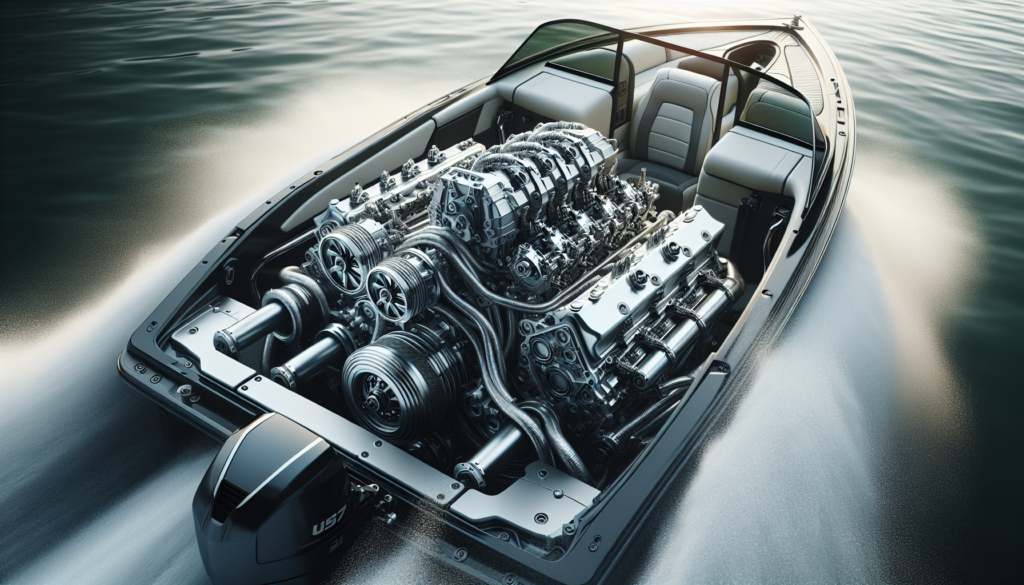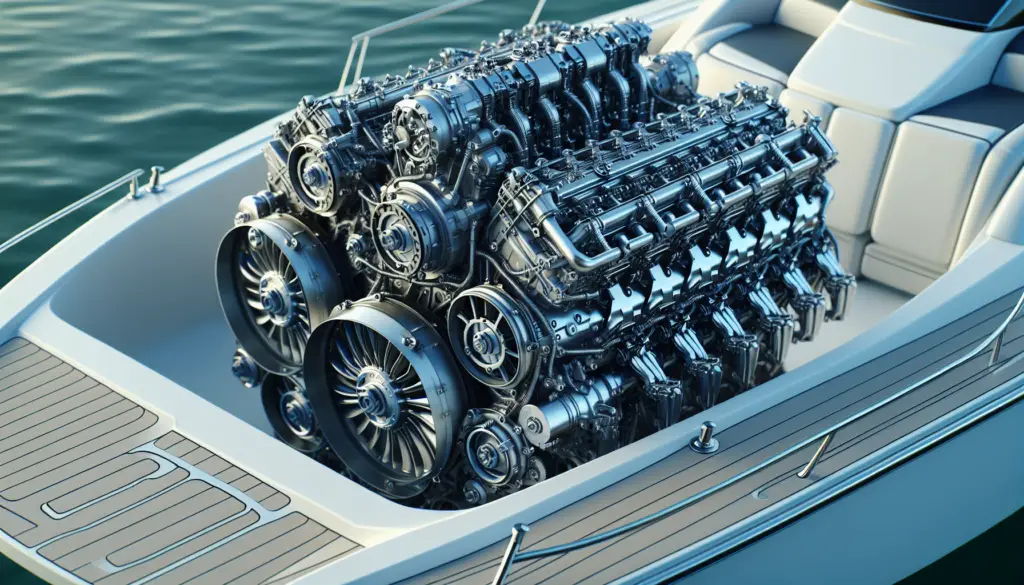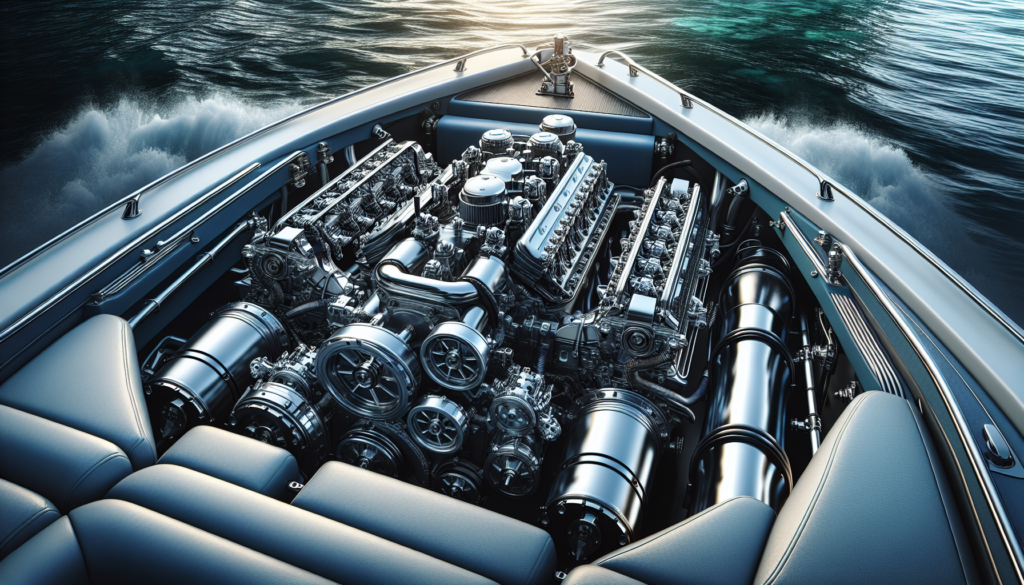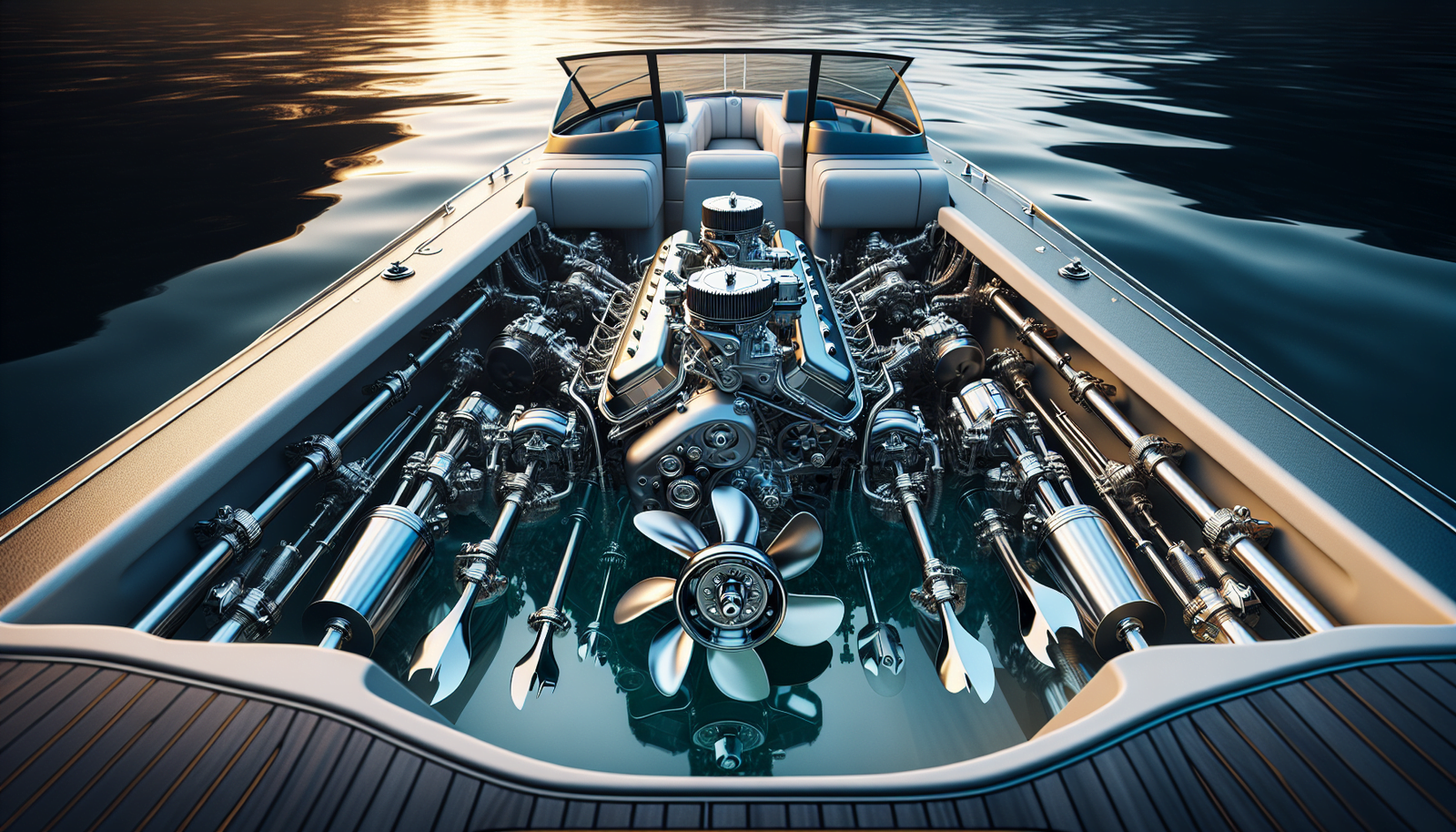Imagine this: you’re out on the water, the sun is shining, the waves are just right, and you’re ready for a day of action-packed water-based fun. But, there’s just one problem, your boat engine seems to be struggling with performance and isn’t giving you the speed or power you need. You’re in luck as this article “How To Upgrade Your Boat Engine For Better Performance On The Water” is going to guide you through the steps to enhance your boat engine’s performance. You’ll acquire insights and practical strategies to transform your boat into a powerful, reliable, and efficient watercraft.

Understanding The Basics Of Boat Engine Performance
Improving your boat engine performance begins with understanding the basics. Let’s demystify what’s under the hood.
Different types of boat engines
Boat engines vary enormously, and each type performs best under specific conditions. The most common types are outboard, inboard, and sterndrive engines. Outboard engines are portable, easy to maintain and suitable for smaller boats. Inboard engines, installed within the boat’s hull, offer more power suitable for larger boats. Sterndrives, or inboard/outboard engines, provide a combination of inboard power and outboard efficiency. Knowing which one you have is the first step to improving its performance.
How boat engine works
Boat engines work similarly to car engines, turning fuel into motion. The engine burns fuel in cylinders, which turns a crankshaft. The crankshaft transfers this energy to the driveshaft, which propels the boat forward. The efficiency of this fuel-to-motion conversion plays a significant role in the engine’s performance.
Factors affecting boat engine performance
A lot of factors impact the performance of your boat engine. These can include the engine’s power and capacity, the condition of your propeller, the boat’s weight, and even the type of fuel you use. External factors like water conditions and weather can also affect performance. Understanding these factors will help you optimize your engine’s performance.
Regular Maintenance For Performance Enhancement
Maintaining your engine doesn’t just mean fixing it when it breaks down. Preventive maintenance can enhance engine performance and extend its life.
The importance of regular maintenance
Regular maintenance of your boat engine is crucial for ensuring safety and reliability on the water. It also helps to maintain the performance and fuel efficiency, keeping running costs down. Failing to regularly maintain your engine could result in poor performance or even costly repairs down the line.
Typical maintenance tasks for boat engines
Regular maintenance tasks include changing the oil and filters, cleaning the carburetor, checking the spark plugs, and adjusting the timing belts. You also should check your cooling system regularly and ensure your fuel system is clean. Regularly inspecting the propeller and the hull can also help maximize your engine’s performance.
Outsourcing maintenance vs DIY
You might wonder if it’s better to outsource maintenance or do it yourself. If you’re mechanically inclined and have the right tools, DIY maintenance can save you money. However, outsourcing to a professional ensures the job is done correctly, preserving the longevity and efficiency of your engine. It’s crucial to consider the cost, your mechanical ability, and the time investment when choosing between outsourcing and DIY.
Upgrading to A More Powerful Engine
Sometimes, regular maintenance isn’t enough to achieve the performance you want. In that case, it might be time for an upgrade.
Deciding when you need a new engine
Several signs suggest that you may need a new engine. These include chronic engine troubles, frequent breakdowns, increased fuel consumption, and decreased performance. If you’re finding your boat struggles to keep up or requires constant repairs, a newer, more powerful engine might be a worthwhile investment.
Choosing the right type and size of the new engine
It’s not just about getting the most powerful engine you can find. The new engine must also match your boat’s size, weight, and hull design. Too much power can cause handling difficulties, excessively fast fuel consumption, or even damage to your boat. Consult with an expert or refer to the manufacturer’s guidelines when choosing a new engine.
Installation considerations and tips
When installing a new engine, keep in mind factors such as engine weight, propeller compatibility, and fuel system requirements. You may also need to make changes to the exhaust, cooling, and electrical systems to accommodate the new engine. Professional installation is highly recommended unless you have the necessary experience and tools.
Improving Boat Propellers
Propellers greatly impact boat performance, thus must not be overlooked.
Understanding the role of propellers in boat performance
Propellers can significantly affect your boat’s speed, acceleration, and fuel efficiency. A propeller with too many blades can cause drag, reducing speed and efficiency, while too few blades might not provide enough power. The condition and cleanliness of your propeller also affect performance.
Considering propeller size and pitch
Choosing the right propeller involves balancing size and pitch. Larger propellers provide more power, while smaller ones offer better speed. Higher pitches move your boat faster at the expense of acceleration, while lower pitches improve acceleration but reduce top speed. Ensure to choose a propeller that suits your boating needs.
When and how to upgrade your propellers
If you’re experiencing poor performance, it might be time to upgrade your propellers. Look for signs like vibration, sluggish acceleration, or inability to reach top speed. Upgrading to a propeller made of a more durable material, increasing or decreasing its size or pitch, or moving to a different number of blades could enhance performance.

Enhancing The Exhaust System
While it might not be the first thing you think of when considering boat performance, the exhaust system plays a critical role.
Exhaust systems role in engines performance
A well-functioning exhaust system carries off the products of combustion efficiently, reduces engine heat, and minimizes back pressure. All these factors contribute to engine performance, fuel efficiency, and the overall life of the engine.
Ideal exhaust system for maximum engine efficiency
An efficient exhaust system should minimize back pressure without allowing water to flow back into the engine. It should also be made of corrosion-resistant material to ensure durability. Regular inspection is essential to identify leaks or blockages.
Upgrading to a high-performance exhaust system
Upgrading to a high-performance exhaust system can improve output, reduce heat, and increase fuel economy. When considering an upgrade, it’s essential to pick one that suits your engine’s specs and your boat’s design to avoid causing harm or losing performance.
Fuel System Upgrades
The fuel system plays a direct role in engine performance, so it deserves special attention.
Impact of fuel system on engine performance
A smoothly operating fuel system optimizes the amount of fuel delivered to the engine. This directly affects combustion, engine output, and fuel efficiency. A failing system could lead to a variety of problems, from poor performance to engine damage.
Considerations when upgrading fuel pumps and filters
Enhancing your fuel system often involves upgrading the pump and filters. A higher-capacity pump can increase fuel pressure and volume, improving performance. High-quality filters can remove contaminants for cleaner fuel and better combustion. Ensure any upgrades are compatible with your engine.
The role of good quality fuel
Even the best fuel system can’t compensate for poor-quality fuel. Using clean, high-quality fuel can drastically impact combustion efficiency and engine performance. Regularly add a fuel stabilizer to maintain optimal fuel quality.

Improving The Cooling System
The function of a boat’s cooling system is crucial to the health and performance of the engine.
The importance of the cooling system in performance
The cooling system prevents overheating in the engine by circulating coolant through the motor’s parts. Overheating can result in decreased performance, damage to key engine parts, and potentially even complete engine failure.
Signs of a failing cooling system
Warning signs of cooling system problems include high engine temperatures, coolant leaks, and steam in the exhaust. Regular inspection and maintenance can help ensure your cooling system is functioning correctly.
Upgrading to a more efficient cooling system
An efficient cooling system can significantly affect your engine’s performance and longevity. If you frequently face overheating issues, it might be time to upgrade to a more efficient system. Talk to a professional to understand what upgrades would most benefit your boat.
Installing Engine Monitoring Systems
Engine monitoring systems can provide crucial data to help you optimize your engine’s performance.
Benefits of an engine monitoring system
Engine monitoring systems provide constant, real-time updates on key engine parameters. These can include fuel consumption, coolant temperature, oil pressure, and engine RPM. Having this information easily at hand allows you to spot and correct issues before they become major problems.
Selecting an appropriate monitoring system for your boat
When choosing an engine monitoring system, consider what metrics you want to monitor, how much you’re willing to spend, and what is compatible with your boat. Various advanced systems also come with features like alarms for specific parameters, data logging capabilities, and GPS integration.
Installation tips for engine monitoring systems
When installing an engine monitoring system, consider placing it where you can easily see it while operating the boat. Bear in mind cables and wiring might need to be run from various engine sensors to the display. If you are not comfortable with doing the installation yourself, consider hiring a professional.

Optimizing Boat Weight and Distribution
The way your boat carries its weight can significantly impact its speed, stability, and fuel efficiency.
Impact of boat weight and distribution on engine performance
Heavy boats require more energy to propel, which can strain the engine and cause it to consume more fuel. Improper weight distribution can impair steering and stability, reducing performance and potentially causing dangerous conditions.
Effective ways to manage boat weight
Consider carrying only essential equipment onboard to reduce weight. Regularly check your boat for excess water in the bilge or unnecessary items adding to the weight. When loading your boat, try to distribute weight evenly across the deck to maintain balance.
How to properly balance your boat for better performance
A balanced boat is quicker, more fuel-efficient, and easier to control. Try to balance weight both from front to back and from side to side. Not only will this make your boat handle better, but it’ll also make it safer and more enjoyable to use.
Professional Tuning Of The Boat Engine
Sometimes, the best way to improve your boat’s performance is to get a professional tune-up.
What is engine tuning
Engine tuning is the process of adjusting the engine’s systems for optimal performance. Professional tuners use specialized tools and knowledge to get the most out of your engine, increasing its power, efficiency, and lifespan.
Benefits of professional engine tuning
Going for professional engine tuning can optimize fuel combustion, alignment and timing, leading to better throttle response, greater torque and horsepower, and improved fuel efficiency. Regular tune-ups can extend your engine’s life, saving you money in the long run.
When to consider engine tuning
If you’re unhappy with your boat’s performance, a tune-up might be just what you need. Regular tune-ups are good practice, but you should especially consider it if you encounter issues like poor fuel efficiency, reduced power, or erratic performance.
By understanding these aspects, you can take steps to improve your boat engine’s performance. Remember, a well-performing engine isn’t just about speed. It also means better fuel efficiency, longer engine lifespan, and safer, more enjoyable time on the water.

